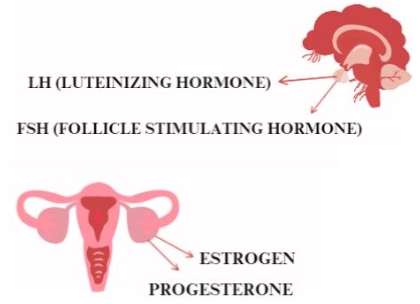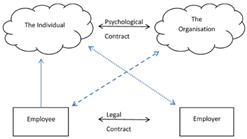Exploring moral heuristics in managerial decision-making. The dialectic of duty and consequence
Abstract
This paper explores the use of moral heuristics within a large public sector organisation in the UK. Managers within the case study organisation were interviewed and directly observed over a four-year period, using a grounded theory methodology, to examine the ways in which they made decisions. Whereas the extant literature primarily focuses on hypothetical situations, this paper delves into the application of the heuristic in real-world situations. The results reveal widespread use of moral heuristics within the organisation, accompanied by a clear dichotomy between ‘soft’ and ‘hard’ business units. Moral heuristics find extensive application in the former but encounter opposition in the latter. Consequently, the paper argues that managers in ‘soft’ work environments are more inclined to employ moral heuristics compared to their counterparts in other parts of the workplace. This study contributes to knowledge in three ways: proposing a new conceptualization of the moral heuristic, identifying instances of its use, and illustrating how it operates in real-world situations. The significance of this paper lies in its demonstration of how the heuristic is practically employed to make crucial, potentially life-changing decisions.
References
[1]Laczniak GR, Murphy PE. Fostering ethical marketing decisions. Journal of Business Ethics. 1991; 10(4): 259-271. doi: 10.1007/bf00382965
[2]Forsyth DR. Judging the morality of business practices: The influence of personal moral philosophies. Journal of Business Ethics. 1992; 11(5-6): 461-470. doi: 10.1007/bf00870557
[3]McDonald G, Pak PC. It’s all fair in love, war, and business: Cognitive philosophies in ethical decision making. Journal of Business Ethics. 1996; 15(9): 973-996. doi: 10.1007/bf00705577
[4]Ericson M. Towards a sensed decision‐making approach. Management Decision. 2010; 48(1): 132-155. doi: 10.1108/00251741011014490
[5]Kahneman D. Thinking, Fast and Slow. Farrar, Strauss and Giroux; 2011.
[6]Liu Y. A literature review of a cognitive heuristic: The anchoring effect. Highlights in Business, Economics and Management. 2023; 11: 271-279. doi: 10.54097/hbem.v11i.8110
[7]Bartels DM, Pizarro DA. The mismeasure of morals: Antisocial personality traits predict utilitarian responses to moral dilemmas. Cognition. 2011; 121(1): 154-161. doi: 10.1016/j.cognition.2011.05.010
[8]Greene JD, Cushman FA, Stewart LE, et al. Pushing moral buttons: The interaction between personal force and intention in moral judgment. Cognition. 2009; 111(3): 364-371. doi: 10.1016/j.cognition.2009.02.001
[9]Woodbine GF, Amirthalingam V. Dishonesty in the Classroom: The Effect of Cognitive Dissonance and the Mitigating Influence of Religious Commitment. Journal of Academic Ethics. 2013; 11(2): 139-155. doi: 10.1007/s10805-013-9185-8
[10]Chai F, Peng K, Yu F. Pricing Aesthetics: How Cognitive Perception Affects Bidding for Artworks. Social Behavior and Personality: an international journal. 2016; 44(4): 541-554. doi: 10.2224/sbp.2016.44.4.541
[11]Burghardt K, Alsina EF, Girvan M, et al. The Myopia of Crowds: A Study of Collective Evaluation on Stack Exchange. SSRN Electronic Journal. 2016. doi: 10.2139/ssrn.2736568
[12]Greenberg J, Baron RA. Behavior in Organizations, 9th ed. Pearson Education; 2008.
[13]Garb HN. The representativeness and past-behavior heuristics in clinical judgment. Professional Psychology: Research and Practice. 1996; 27(3): 272-277. doi: 10.1037/0735-7028.27.3.272
[14]Hardin W. Behavioral research into heuristics and bias as an academic pursuit. Journal of Property Investment & Finance. 1999; 17(4): 333-352. doi: 10.1108/14635789910271737
[15]Shah AK, Oppenheimer DM. Heuristics made easy: An effort-reduction framework. Psychological Bulletin. 2008; 134(2): 207-222. doi: 10.1037/0033-2909.134.2.207
[16]Apte C, Hong SJ. Predicting Equity Returns from Securities Data. Advances in Knowledge Discovery & Data Mining: AAAI Press; 1995.
[17]Gigerenzer G. Moral Intuition = Fast and Frugal Heuristics? In: Sinnott-Armstrong W (editor). Moral Psychology. The Cognitive Science of Morality. MIT Press; 2008. pp. 1-26.
[18]Gigerenzer G, Goldstein DG. The recognition heuristic: A decade of research. Judgment and Decision Making. 2011; 6(1): 100-121. doi: 10.1017/s1930297500002126
[19]Newell BR, Weston NJ, Shanks DR. Empirical tests of a fast-and-frugal heuristic: not everyone takes-the-best. Organ Behav Hum Decis Process. 2003; 91: 82-96. doi: 10.1016/S0749-5978(02)00525-3
[20]Cosmides L, Tooby J. Evolutionary Psychology, Moral Heuristics, and the Law. Heuristics and the Law. Dahlem University Press; 2006: 175-206. doi: 10.7551/mitpress/3488.003.0012
[21]Bartsch k, Wright JC. Towards an intuitionist account of moral development. Behavioral and Brain Sciences. 2005; 28(4): 546-547. doi: 10.1017/s0140525x05260090
[22]Hahn U, Frost JM, Maio G. what’s in a heuristic? Behavioral and Brain Sciences. 2005; 28(4): 551-552. doi: 10.1017/s0140525x05320097
[23]Dewey J. Human nature and conduct. Henry Holt; 1922.
[24]Sunstein CR. Moral heuristics. Behavioral and Brain Sciences. 2005a; 28(4): 531-542. doi: 10.1017/s0140525x05000099
[25]Sunstein CR. On moral intuitions and moral heuristics: a response. Behavioral and Brain Sciences. 2005b; 28(4): 565-570. doi: 10.1017/s0140525x05460094
[26]Bruers S. Speciesism as a Moral Heuristic. Philosophia. 2013; 41(2): 489-501. doi: 10.1007/s11406-013-9420-y
[27]Wilkinson‐Ryan T, Baron J. Moral Judgment and Moral Heuristics in Breach of Contract. Journal of Empirical Legal Studies. 2009; 6(2): 405-423. doi: 10.1111/j.1740-1461.2009.01148.x
[28]Fisher C, Malde S. Moral imagination or heuristic toolbox? Events and the risk assessment of structured financial products in the financial bubble. Business Ethics: A European Review. 2011; 20(2): 148-158. doi: 10.1111/j.1467-8608.2011.01615.x
[29]Rosenbaum L. Beyond Moral Outrage—Weighing the Trade-Offs of COI Regulation. New England Journal of Medicine. 2015; 372(21): 2064-2068. doi: 10.1056/nejmms1502498
[30]DeScioli P, Kurzban R. A solution to the mysteries of morality. Psychological Bulletin. 2013; 139(2): 477-496. doi: 10.1037/a0029065
[31]DeScioli P. The side-taking hypothesis for moral judgment. Current Opinion in Psychology. 2016; 7: 23-27. doi: 10.1016/j.copsyc.2015.07.002
[32]Chorus CG. Models of moral decision making: Literature review and research agenda for discrete choice analysis. Journal of Choice Modelling. 2015; 16: 69-85. doi: 10.1016/j.jocm.2015.08.001
[33]Sinnott-Armstrong W, Young L, Cushman F. Moral intuitions as heuristics. In: Doris JM (editor). The moral psychology handbook. Oxford University Press; 2010. pp. 246-272. doi: 10.1093/acprof:oso/9780199582143.003.0008
[34]Singer P. Intuitions, heuristics, and utilitarianism. Behavioral and Brain Sciences. 2005; 28(4): 560-561. doi: 10.1017/s0140525x05410092
[35]Geipel J, Hadjichristidis C, Surian L. How foreign language shapes moral judgment. Journal of Experimental Social Psychology. 2015; 59: 8-17. doi: 10.1016/j.jesp.2015.02.001
[36]Waldmann MR, Wiegmann A. A double causal contrast theory of moral intuitions in trolley dilemmas. In: Ohlsson S, Catrambone R (editors). Proceedings of the 32nd Annual Conference of the Cognitive Science Society. Cognitive Science Society; 2010.
[37]Haidt J, Kesebir S. In the forest of value: Why moral intuitions are different from other kinds. In: Plessner H, Betsch C, Betsch T (editors). Intuition in judgment and decision making. Lawrence Erlbaum; 2008. pp. 209-229.
[38]Sunstein CR. Moral Heuristics and Risk. In: Roeser S (editor). Emotions and Risky Technologies: The International Library of Ethics, Law and Technology. Springer; 2010. pp. 3-16.
[39]Gerrig RJ. Moral judgments in narrative contexts. Behavioral and Brain Sciences. 2005; 28(4): 550-550. doi: 10.1017/s0140525x05300094
[40]Gigerenzer G. Moral Satisficing: Rethinking Moral Behavior as Bounded Rationality. Topics in Cognitive Science. 2010; 2(3): 528-554. doi: 10.1111/j.1756-8765.2010.01094.x
[41]Thomson JJ. The Trolley Problem. The Yale Law Journal. 1985; 94(6): 1395. doi: 10.2307/796133
[42]Bentham J. An Introduction to the Principles of Morals and Legislation. Dover Publications; 2007.
[43]Kant I. The Metaphysical Elements of Ethics. International Alliance Pro-Publishing; 2011.
[44]Baron J. Biting the utilitarian bullet. Behavioral and Brain Sciences. 2005; 28(4): 545-546. doi: 10.1017/s0140525x05250094
[45]Ritov I. Cognitive heuristics and deontological rules. Behavioral and Brain Sciences. 2005; 28(4): 559-560. doi: 10.1017/s0140525x05400096
[46]Tobler PN, Kalis A, Kalenscher T. The role of moral utility in decision making: An interdisciplinary framework. Cognitive, Affective, & Behavioral Neuroscience. 2008; 8(4): 390-401. doi: 10.3758/cabn.8.4.390
[47]Moore AB, Clark BA, Kane MJ. Who Shalt Not Kill? Individual Differences in Working Memory Capacity, Executive Control, and Moral Judgment. Psychological Science. 2008; 19(6): 549-557. doi: 10.1111/j.1467-9280.2008.02122.x
[48]Suter RS, Hertwig R. Time and moral judgment. Cognition. 2011; 119(3): 454-458. doi: 10.1016/j.cognition.2011.01.018
[49]Conway P, Gawronski B. Deontological and utilitarian inclinations in moral decision making: A process dissociation approach. Journal of Personality and Social Psychology. 2013; 104(2): 216-235. doi: 10.1037/a0031021
[50]Weber EU, Ancker JS. Towards a taxonomy of modes of moral decision-making. Behavioral and Brain Sciences. 2005; 28(4): 563-564. doi: 10.1017/s0140525x05440091
[51]Bucciarelli M, Khemlani S, Johnson-Laird PN. The psychology of moral reasoning. Judgment and Decision Making. 2008; 3(2): 121-139. doi: 10.1017/s1930297500001479
[52]Fried BH. Moral heuristics and the means/end distinction. Behavioral and Brain Sciences. 2005; 28(4): 549-550. doi: 10.1017/s0140525x0529009x
[53]Argyle M. The psychology of interpersonal behaviour, 4th ed. Penguin; 1983.
[54]Weirich P. Regulation of risks. Behavioral and Brain Sciences. 2005; 28(4): 564-565. doi: 10.1017/s0140525x05450098
[55]Sunstein CR. Moral Heuristics. SSRN Electronic Journal. 2003. doi: 10.2139/ssrn.387941
[56]Appleby A, Clark A. Quality management in local government, the same as in the private sector but different. Leadership & Organization Development Journal. 1997; 18(1): 29-36. doi: 10.1108/01437739710156268
[57]Strauss AL, Corbin J. Basics of qualitative research: Techniques and procedures for developing grounded theory, 2nd ed. Thousand Oaks, CA: Sage; 1998.
[58]Birks M, Mills J. Grounded theory: A practical guide. Sage; 2022.
[59]Glaser BG, Strauss AL, Strutzel E. The Discovery of Grounded Theory; Strategies for Qualitative Research. Nursing Research. 1968; 17(4): 364. doi: 10.1097/00006199-196807000-00014
[60]Glaser BG. Theoretical sensitivity: Advances in the methodology of grounded theory. Sociology Press; 1978.
[61]Glaser BG. Doing Grounded Theory: Issues and Discussions. Sociology Press; 1998.
[62]Glaser BG. Constructivist Grounded Theory? Forum: Qualitative Social Research. 2002; 3(3).
[63]Glaser BG, Holton J. Remodelling Grounded Theory. Forum: Qualitative Social Research. 2004; 5(2).
[64]Corbin J, Strauss AL. Basics of Qualitative Research, 3rd ed. Sage; 2008.
[65]Douglas D. The human complexities of entrepreneurial decision making: a grounded case considered. International Journal of Entrepreneurial Behavior & Research. 2005; 11(6): 422-435. doi: 10.1108/13552550510625159
[66]Urquhart C. Grounded theory for qualitative research: A practical guide. Sage; 2011.
[67]Geiger S, Turley D. Grounded theory in sales research: an investigation of salespeople’s client relationships. Journal of Business & Industrial Marketing. 2003; 18(6/7): 580-594. doi: 10.1108/08858620310492437
[68]Lings B, Lundell B. On the adaptation of Grounded Theory procedures: insights from the evolution of the 2G method. Information Technology & People. 2005; 18(3): 196-211. doi: 10.1108/09593840510615842
[69]Glöckner A, Betsch T. Multiple-reason decision making based on automatic processing. Journal of Experimental Psychology: Learning, Memory, and Cognition. 2008; 34(5): 1055-1075. doi: 10.1037/0278-7393.34.5.1055
[70]Anderson CJ. Alternative perspectives on omission bias. Behavioral and Brain Sciences. 2005; 28(4): 544-544. doi: 10.1017/s0140525x05230091
[71]UK Government. Environmental Protection (England) (Crematoria Mercury Emissions Burden Sharing Certificate) Direction 2010. Available online: https://www.iccm-uk.com/iccm/wp-content/uploads/2020/09/iccm_DEFRA-CremtoriaMercuryEmissionsDirection2010-2.pdf (accessed on 29 September 2023).
[72]UK Government. PGN 5/2(12) Statutory Guidance for Crematoria. Available online: https://www.gov.uk/government/publications/crematoria-process-guidance-note-52 (accessed on 29 September 2023).
[73]Checkland PB. Soft Systems Methodology: A thirty year retrospective. Systems Research and Behavioral Science. 2000; 17(1): 11-58. doi: 10.1002/1099-1743(200011)17:1+<::AID-SRES374>3.0.CO;2-O
[74]Wilson B. Systems: concepts, methodologies and applications, 2nd ed. John Wiley; 1990.
[75]Clayton AMH, Radcliffe NJ. Sustainability: a systems approach. Earthscan; 1996.
[76]Checkland PB, Poulter J. Learning for Action: A short definitive account of Soft Systems Methodology and its use for Practitioners, teachers and Students. Wiley; 2006.
[77]Brännmark J. Moral Disunitarianism. The Philosophical Quarterly. 2015; 66(264): 481-499. doi: 10.1093/pq/pqv114
[78]Koehler JJ, Gershoff AD. Betrayal aversion is reasonable. Behavioral and Brain Sciences. 2005; 28(4): 556-557. doi: 10.1017/s0140525x05370099
[79]Laroche M, Kim C, Matsui T. Which decision heuristics are used in consideration set formation? Journal of Consumer Marketing. 2003; 20(3): 192-209. doi: 10.1108/07363760310472236
[80]Tversky A, Kahneman D. Availability: a heuristic for judging frequency and probability. Cognitive Psychology. 1973; 5(2): 207-232. doi: 10.1016/0010-0285(73)90033-9
[81]Crowder M. Public procurement: the role of cognitive heuristics. Public Money & Management. 2015; 35(2): 127-134. doi: 10.1080/09540962.2015.1007707
Copyright (c) 2023 Mark Crowder, Marilena Antoniadou

This work is licensed under a Creative Commons Attribution 4.0 International License.









